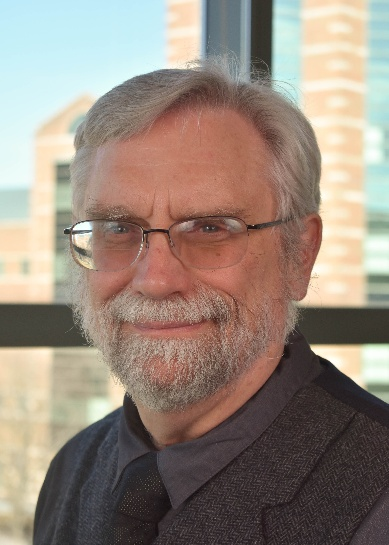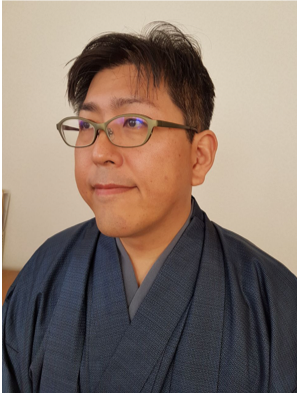

AsiaSim (Asia Simulation Conference), 19th in the series, is an annual international conference organized by the Federation of Asia Simulation Societies (ASIASIM) whose current member societies are China Simulation Federation (CSF), Japanese Society for Simulation Technology (JSST), Korea Society for Simulation (KSS), Society for Simulation and Gaming of Singapore (SSAGsg) and Malaysian Simulation Society (MSS). The Federation of Asia Simulation Societies (ASIASIM) was set up to promote the advancement of modelling and simulation in industry, research and development in Asia and beyond. The AsiaSim conference is an international forum for disseminating recent advances in modeling, simulation and gaming. AsiaSim provides a meeting place for simulation researchers and practitioners in all disciplines in academic, industry, government, military sectors among others to share leading developments and advances in systems simulation.
David M. Nicol is the Franklin W. Woeltge Professor of Electrical and Computer Engineering at the University of Illinois in Urbana-Champaign, where he also serves as the Director of the Information Trust Institute, and Director of the Advanced Digital Sciences Center (Singapore). He has a B.A. in Mathematics from Carleton College (1979), and M.S. and Ph.D. degrees in Computer Science (1985) from the University of Virginia. Professor Nicol's research interests encompass high performance computing, discrete system modeling and simulation, and end-to-end modeling/analysis of cyber-security, resilience, and trust in complex systems. He served as Editor-in-Chief of ACM Transactions on Modeling and Computer Simulation (1997-2003) and since 2018 has served as Editor-in-Chief of IEEE's flagship publication on cyber-security, IEEE Security and Privacy. He was elected Fellow of the IEEE in 2003, Fellow of the ACM in 2006, and in 2007 was the inaugural recipient of the ACM SIGSIM Distinguished Contributions award.
The Challenges of Repeatability and Fidelity of Cyber-Physical Digital Twins
A digital twin of a cyber-physical system is a simulation whose execution mimics the behavior of both the physical and cyber components of the system. While the idea of co-joining or federating simulations has been considered for quite a long time, the rise in interest of cyber-physical systems, coupled with increased computational power has brought the idea to the forefront under the labeling of 'digital twin'. Uses include exploration of how cyber malfeasance might negatively impact the physical system, how the physical system may react to unusual inputs or boundary conditions, whether a particular control applied to the system will push it into a region of unsafe behavior. Fidelity of digital twins is clearly a desirable attribute, as is repeatability. In the former case we want confidence that the digital twin faithfully (enough) captures the behavior of interest, in the latter case we need to be able to understand, by replying the simulation, how a particular behavior observed in the simulation came to occur. This talk focuses on the challenges of repeatability and fidelity in a cyber-physical digital twin, when that twin combines classical simulation with emulation of executing software.

Jun is working for Tezos blockchain technology as one of the few Asian core developers since its mainnet launch in September 2019. He is also a scientific director of Tezos Japan, an NPO to promote Tezos technology in Japan to the industry and the academia. Being a researcher of functional programming and its static type system (Ph.D., Université Paris Diderot), his interests are always in applying programming language theory and formal verification methods to provide better security to mission-critical systems. He has started his own company DaiLambda in the last year, after 10 years of career as a quantitative developer for systems for derivative product modeling (LexiFi, Standard Chartered Bank) and high-frequency trading (Jane Street Capital).
Blockchain Safety and Smart Contract Simulation
Blockchain is a distributed database in an open network, where anyone can join by running a node without permission. As far as we know, such a system can be maintained only by incentivizing the participants to behave honestly at its resolution of the conflicts. Consequently, blockchain must handle a huge amount of rewards as cryptocurrencies and any bugs may become attack vectors for theft. Therefore, safety is the first concern for blockchain developers. Smart contracts are programs associated with blockchain accounts and executed at transactions. Since the execution happens on all the nodes, the caller must pay a fee to the network. To estimate the cost, the caller must simulate each transaction before sending it to the network. This simulation is also important to secure the smart contracts along with formally verifying their safety properties, since any bug or misspecification may turn them to automatic stealing machines.
Ms. SUN Tel: +86-13588210860







